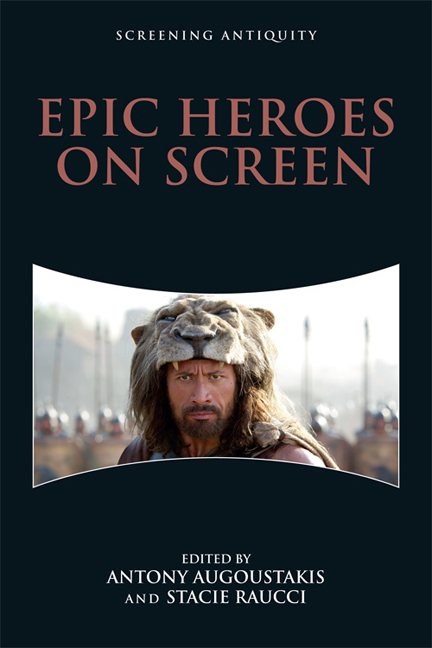13 - Ancient (Anti)Heroes on Screen and Ancient Greece Post-9/11
Published online by Cambridge University Press: 24 April 2021
Summary
INTRODUCTION
Louis Leterrier's 2010 film Clash of the Titans features a scene that is totally absent from its predecessor, Desmond Davis’ 1981 film of the same name: the destruction of a monumental statue of Zeus. The statue of the king of the Greek gods has several features that many audience members would recognize as central to popular culture's definition of the “classical”: the white (CGI) marble, the smooth musculature of the chest, arms, and legs; the chiton; and the javelin-throwing stance. On orders from the king and queen of Argos, soldiers break the statue's legs, causing it to topple into the sea. They cheer triumphantly at their symbolic gesture of defiance toward divinities that they believe have become arrogant and cruel toward the human world. The gods are thus the ostensible targets of humanity's anger in Clash, an anger mirrored by the protagonist Perseus, who is hostile toward the gods’ influence and gifts and in the final scene declares his desire to live as a mortal instead of becoming one of the Olympians as his father Zeus offers.
Leterrier's Clash is one of several films produced in the first decade of the twenty-first century whose protagonists reject mythical thinking as it is instantiated in popular culture. “Mythical thinking” is what Darko Suvin has called the “supernaturally determined” elements that have become so central to notions of ancient Greece in modern popular culture: myths, magic, religion, and general mysticism. This rejection is in part a reaction to what Jason Landrum has called the “postmillennial catastrophes” that occurred in the United States just after the turn from the twentieth to the twenty-first century, especially the terrorist attacks of September 11, 2001. These episodes shook American identity to the core with concerns about the United States’ “weakness and ineffectuality” in the aftermath. This perceived weakness resulted in a variety of responses in popular culture, including what Susan Faludi saw as a turn toward traditional visions of gender: “an era of neofifties nuclear family ‘togetherness,’ redomesticated femininity, and reconstituted Cold War manhood.”
- Type
- Chapter
- Information
- Epic Heroes on Screen , pp. 206 - 221Publisher: Edinburgh University PressPrint publication year: 2018



